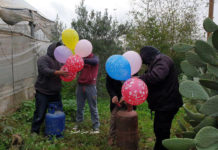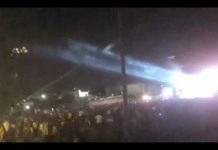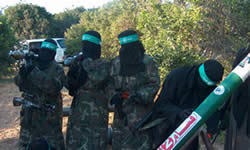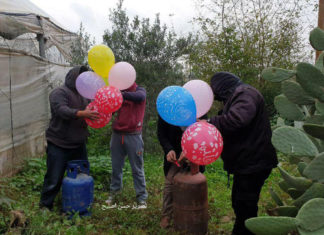Israel must prepare itself for the fact that in a coming war, the IDF will not be able to block all incoming rockets from hitting civilian areas, despite the anticipated deployment of the Iron Dome system in 2010, IDF Chief of General Staff Lt.-Gen. Gabi Ashkenazi told the Knesset Foreign Affairs and Defense Committee on Tuesday morning.
During the general periodical briefing to the powerful committee, the commander of the IDF focused heavily on Iran and Israel’s security, offering cautious optimism regarding the efficacy of international sanctions, while warning that with Teheran’s help, Hizbullah had amassed “tens of thousands” of rockets to be used against Israel.
While the majority of those rockets have limited ranges, similar to those deployed against Israel in the Second Lebanon War, some of them, Ashkenazi said, had a range of over 300 kilometers.
Both Hizbullah and Hamas are among the beneficiaries of Iran’s weapons trafficking and terror-training activities, said Ashkenazi, explaining that “there is a battle in the Middle East between the radicals and the moderates which is pushing Iran to radical acts, to fund terror.”
Ashkenazi said that in 2010 Israel will deploy the first two “Iron Dome” batteries along the southern border with the Gaza Strip, but moments later, while discussing the recent joint exercise held by American and Israeli forces, warned that “you cannot build a canopy of iron over the whole country. It is an illusion. In future wars, rockets will fall here.” The IDF’s obligation, in light of that fact, he continued, was “to reduce the number of incidents – and the damage that will be caused – by increasing warning times to allow us to evacuate areas where we suspect a rocket could fall.
In the short term, he argued, neither Hamas nor Hizbullah have any desire to heat up tensions with the IDF. Ashkenazi described what he called a “paradox” on the northern border. “We don’t delude ourselves. The situation is delicate and Hizbullah is growing stronger all the time. On one hand, [the front] is quiet, but when you lift your head up over the border, you see strengthening and bolstering. If Hizbullah carries out a revenge attack for [the February 2008 assassination of arch-terrorist Imad] Mughniyeh, Israel will have to respond, and that could lead to escalation.”
In the south, he said, Hamas is “reigned in and is reigning in others.” Only last week, he said, Hamas launched an armed operation against an “extreme group” in the southern Gaza city of Rafah. But while Hamas is avoiding direct confrontation with Israel, he noted, this year IDF forces uncovered over 45 IEDs which had been placed along the Gaza security fence. In addition, said the IDF chief of general staff, the IDF killed 37 terrorists in the same period.
Both groups, he said, benefit from Iranian smuggling routes, both overland and by sea, as well as – in the case of Hizbullah – shipments that are permitted to land at Syrian air fields. “The Iranian challenge is to increase control over the Middle East through training, arms and money provided to all terror organizations.” Ashkenazi emphasized that without Iran, the terror organizations would not have the capabilities that they currently possess.
Regarding the Iranian nuclear program, the top general asserted that Iran is “extreme,” but at the same time “rational.” Ashkenazi offered guarded optimism that “if the Iranians know they will pay a heavy price for the continuation of their nuclear program, it is not improbable that they will change their direction.”
Still, he reminded the MKs, “the IDF is preparing all of the options and the decision-makers will have to weigh their direction.”










